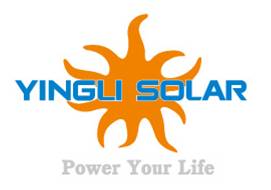February 3 – Yingli Green Energy, one of the world’s largest manufacturers of solar panels, was unveiled as the first Chinese company to sponsor the FIFA World Cup today.
Also the first renewable energy company to back football’s showpiece event, Yingli becomes the seventh event-specific sponsor of South Africa 2010, which takes place from June 11 to July 11 this year.
“The announcement of Yingli Green Energy as the first Chinese company to be a global sponsor of the World Cup marks a historical moment,” FIFA President Sepp Blatter said in a video message to a news conference in Beijing.
“I want to commend Yingli on this sponsorship and their commitment to helping us build a better future, which is one of our most important missions.”
China is emerging as a favourite hunting ground for sporting organisations seeking new sponsorship, especially after the successful marketing campaign for the 2008 Beijing Olympics.
Despite an ongoing match-fixing scandal and the arrest of the head of the Chinese Football Association last month, the world’s most populous country remains an attractive proposition for FIFA.
“China is a given, China is one of the powerhouses of the world,” said FIFA’s marketing director Thierry Weil.
“Yes, there are some scandals in football and FIFA is fighting against that corruption.
“But that has nothing to do with every football fan you have in this country.
“This is a massive sport, it is a sport liked in China.
“FIFA cannot do without China and that is why we are extremely proud today to welcome the first Chinese company to be part of the World Cup.”
The financial details of the sponsorship deal were not disclosed but Yingli will equip with solar panel all 20 of FIFA’s “Centres for 2010”, one of the world governing body’s main legacy projects in Africa.
“We look forward to using our expertise, along with FIFA, to do something good for football,” said Liansheng Miao, Yingli’s chairman and chief executive.
Weil also defended the environmental record of FIFA and the World Cup.
“We implement slowly but for sure we implement clean energy,” he said.
“The world is slowly changing and … we cannot go faster than the world in general, but as soon as we are provided with them, we will provide those sort of energies.”
FIFA made $253 million (£159 million) from marketing deals in 2008, the last year for which figures are available, representing about a quarter of its revenue, the remainder of which comes largely from the sale of television rights for the World Cup.
Its FIFA Partners programme has attracted six well-known international brands – Adidas, Coca Cola, Emirates airlines, Hyundai/Kia, Sony and Visa.
The six other sponsors of this year’s World Cup finals tournament are Budweiser, McDonalds, Castrol, Continental tyres, MTN mobile communications and Indian-owned Satyam IT services company.
Weil said they hoped to find one more in this category.

